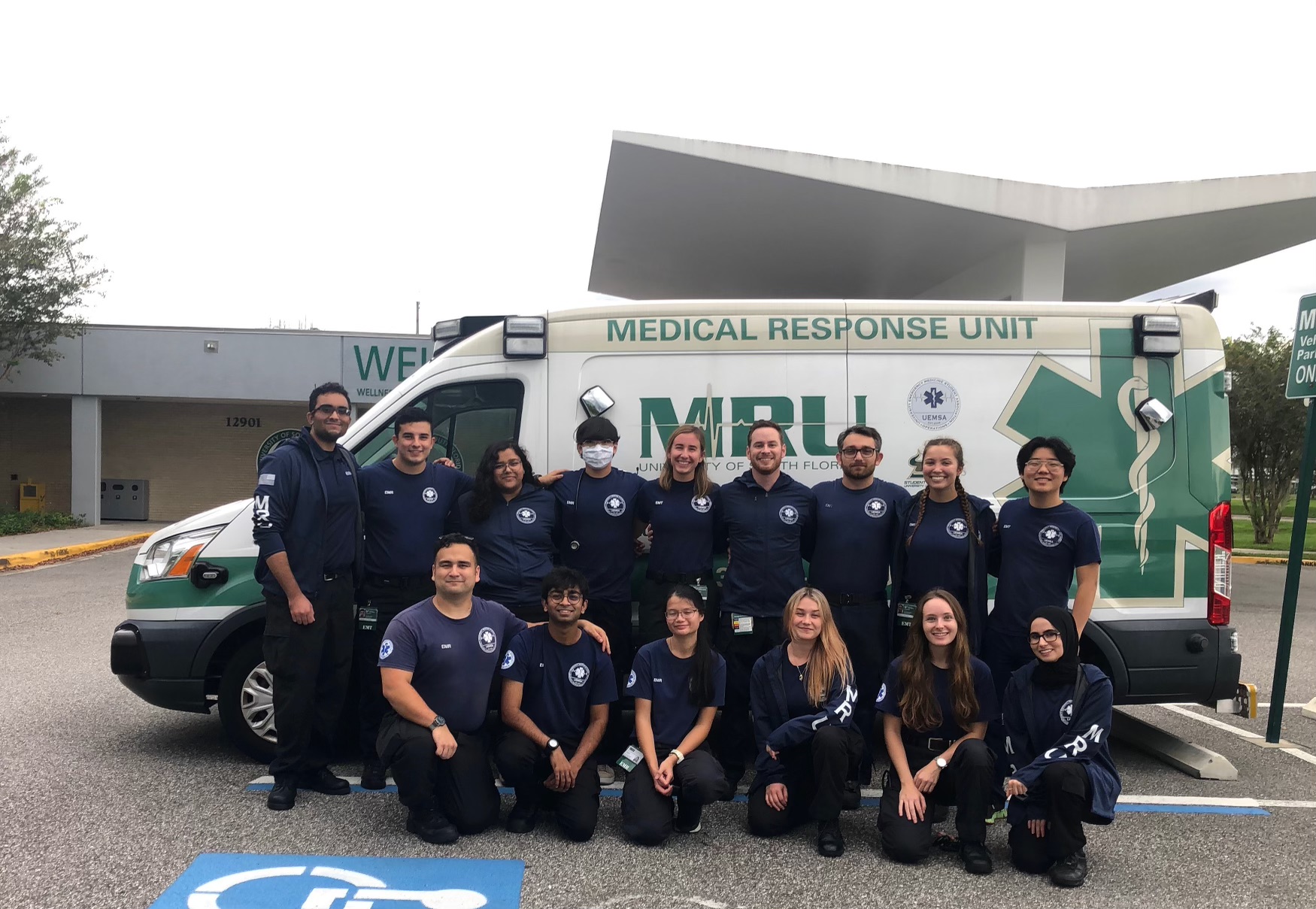Student EMT’s care for special needs shelter patients amid Hurricane Ian

The evening before Hurricane Ian was expected to make landfall in Tampa Bay as a Category 4 storm, senior health sciences major Anna-Jean Wilson shrugged off her anxieties and packed a bag for an indefinite stay at the emergency shelter at Erwin Technical College as an EMT.
Wilson, alongside 15 other University Emergency Medicine Student Association (UEMSA) members, a student organization of trained EMTs, would administer care for over 300 patients during and after the storm. Despite the stress of the situation, she said it was an obvious choice to help out.
“I know talking to my parents, they already had a plan of their own set out where they were going to be safe. And for me being [in Tampa], there were 300 or 400 people that still needed care in a shelter that might not have gotten it,” Wilson said. “If we know what we’re doing and we have certifications to do so, why wouldn’t you go and do it?”
Remembering the devastation Hurricane Irma brought in 2017, UEMSA President and senior biomedical sciences major Olivia Kanahan said it was important the organization was prepared to provide any care it could.
Although the team was only there for about three days, they had prepared to stay for over a week as they did when Irma hit, according to Kanahan.
While UEMSA generally focuses on providing care for USF students, patients at the Erwin Technical College special needs shelter were those that needed electricity to survive, according to Kanahan. Some patients were on ventilators and others required refrigeration for their insulin, so having assistance from UEMSA was essential.
Kanahan said each member was responsible for treating around 30 patients since there were only 16 of them. Treatment included taking care of injuries sustained during their stay as well as staying on top of patients who had medication that needed to be taken frequently.
“We did a lot of glucose checks because there were a lot of diabetic patients there and a lot of oxygen administration, making sure people are hooked up and that their O2 stats are good,” she said.
“Another really big thing that we were doing is making sure that people were compliant with their meds because a lot of them are on life-saving medications and I think sometimes don’t realize how important the medication you’re taking is.”
Understanding the uncertainty that the storm brought, Wilson said care was distributed in two parts — physical care and mental relief. While making sure their physical health was in check, keeping tabs on their emotional well-being was also important in patient care, according to Wilson.
“I know for patients that I had interacted with, there was definitely the fear of something going wrong, [such as] ‘how was the storm going?’ Because oftentimes, you didn’t have service every now and then and you couldn’t always keep up with what was happening,” she said.
“Part of physically taking care of people was just one aspect and then mentally taking care of people to make sure they felt safe, they felt comforted and felt like there were enough supplies for them there.”
With nearly 60% of all of the patients in the shelter being dominant Spanish speakers, senior biomedical sciences major and fluent Spanish speaker Sebastian Claro said it was especially important to reassure those who didn’t speak much English. He said not being able to understand the English speakers around them or updates delivered added extra anxiety for them.
“Honestly, I like the Spanish aspect of it because you can really tell speaking Spanish takes a little stress off of their back because they’re like ‘OK, somebody here understands me fully if I have an emergency,’” Claro said.
Having the opportunity to expand their care outside of the university was a privilege, according to Kanahan. Although they enjoy serving their peers, she said being able to help out the Tampa community in a time of need is what being a health care provider is all about.
“We were really honored at the opportunity that these people trusted us to be helping them and providing this care to them,” Kanahan said. “It was really meaningful to us that they trusted this type of care onto us.”







